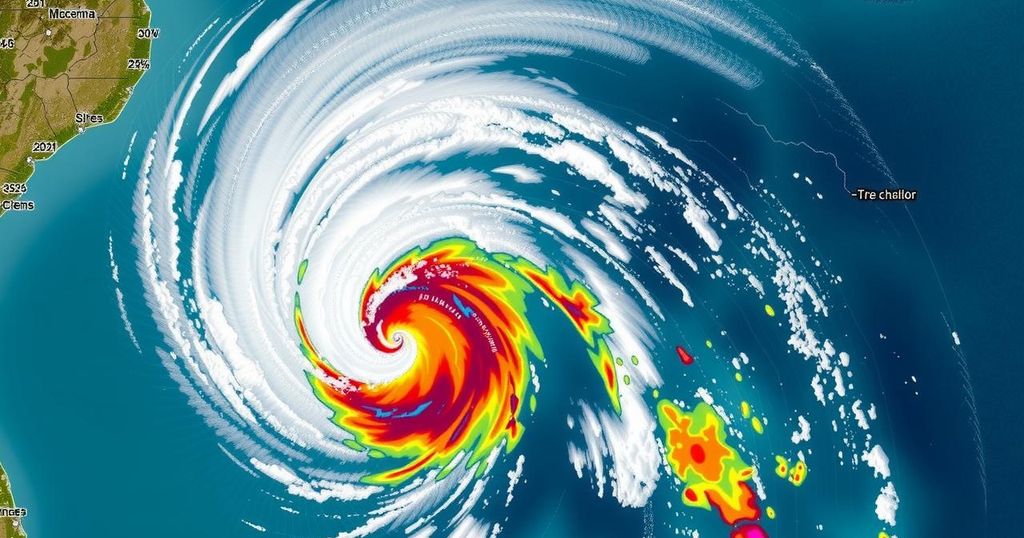Mozambique’s Humanitarian Crisis: Impacts of Conflict and Cyclone Chido

Mozambique faces a complex humanitarian crisis, with 3.3 million expected to experience acute food insecurity from November to February. The recent landfall of Tropical Cyclone Chido has further complicated conditions, resulting in at least 73 deaths and 329,500 people in need of immediate assistance. Conflict and violence, notably in Cabo Delgado, have increased displacement and hindered humanitarian access, requiring urgent response efforts.
Mozambique currently faces a multifaceted humanitarian crisis affecting millions due to conflict, natural disasters, and food insecurity. With approximately 3.3 million individuals anticipated to endure acute food insecurity from November to February, the situation remains dire. The topical Cyclone Chido, which impacted northern Mozambique on December 15, has complicated an already precarious landscape, resulting in at least 73 fatalities and displacing approximately 329,500 people. This cyclone has merely intensified an ongoing crisis characterized by violence and disease outbreaks, particularly evident in Cabo Delgado Province where incidents of violence have surged, raising concerns regarding the protection of vulnerable populations and hindering humanitarian access.
Significantly, as of January 2024, an estimated 2.3 million people are in need of humanitarian assistance, while 717,000 individuals have been identified as internally displaced persons (IDPs). Among these, 577,000 IDPs are directly affected by the ongoing conflict in northern regions, leading to further challenges for humanitarian organizations striving to provide necessary support. The food situation remains critical, with anticipations that around 10 percent of Mozambique’s population will encounter Crisis—IPC 3—levels of acute food insecurity throughout the lean season, particularly as many households will deplete their food reserves earlier due to below-average agricultural harvests. This complex emergency signifies a pressing need for an immediate, concerted response from both national and international stakeholders to alleviate suffering and restore stability in the affected communities.
The humanitarian situation in Mozambique has reached a precarious state primarily attributed to a combination of climate-related events and ongoing conflict, particularly in the northern provinces. Tropical Cyclone Chido, which took landfall recently, has added to the challenges faced by millions already grappling with food insecurity and violence. Moreover, ongoing internal displacements, primarily due to non-state armed group (NSAG) aggression, exacerbate the humanitarian landscape, constraining access to essential services and assistance for displaced persons. As a result, local and international agencies are under significant pressure to respond effectively to the heightened needs presented by these interconnected crises.
In conclusion, Mozambique’s current humanitarian crisis necessitates urgent, comprehensive intervention to address the needs of millions affected by food insecurity, displacement, and natural disasters. The recent impact of Tropical Cyclone Chido highlights the vulnerabilities that the population faces exacerbated by ongoing conflict and disease outbreaks. Therefore, it is critically important for both local and international entities to collaborate and expedite humanitarian efforts aimed at restoring stability and providing essential assistance to the affected communities.
Original Source: reliefweb.int







